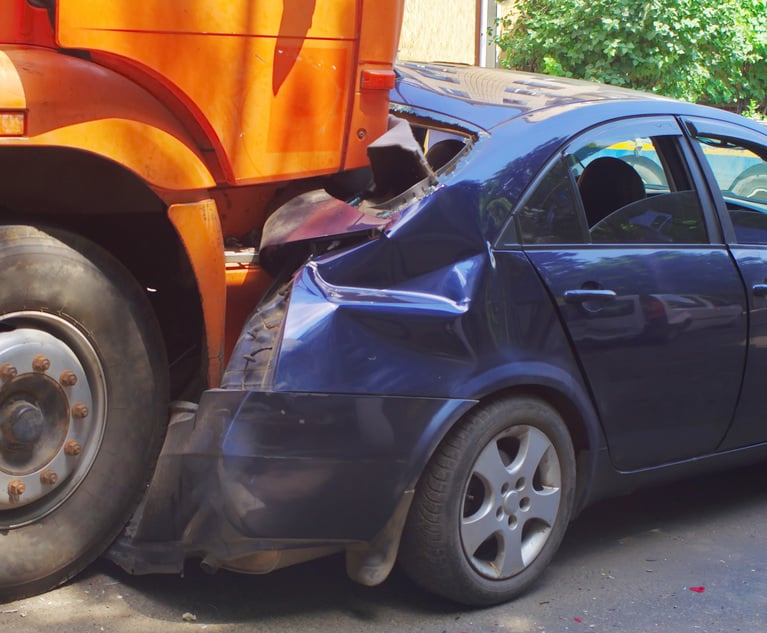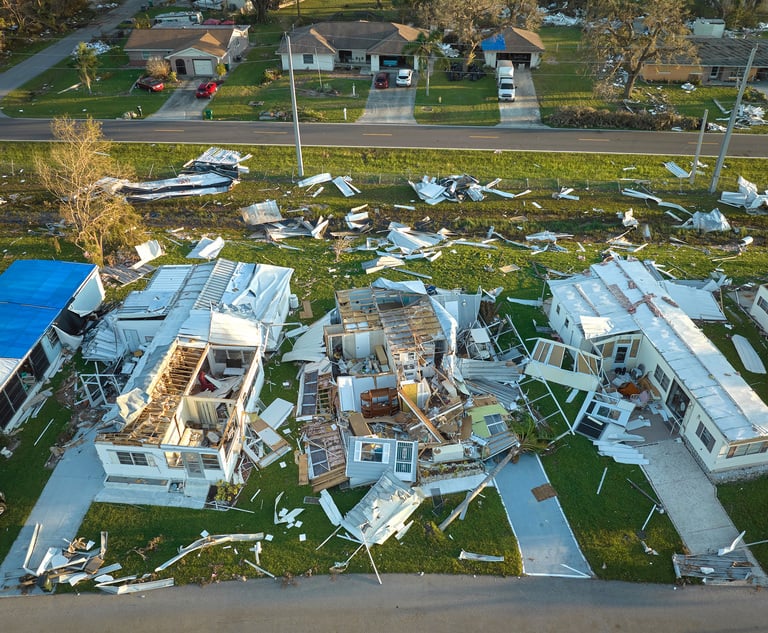When there has been a loss of life or property, speculation andthe pointing of fingers are never far behind. An emotionally skewedreaction is natural when unexpected loss destabilizes and alterseveryday life, sometimes irrevocably. Everyone touched by theseevents naturally looks to find answers and explanations that willallow a return to some kind of normalcy and a sense ofsecurity.
|Part of this process is the assignment of accountability andplacing of blame. Some do this as a matter of course in an effortto explain what happened and to decide if there is a risk of ithappening again. Unfortunately, in today's world, personalaccountability and responsibility are nearly extinct concepts.
|Whether it's a fire, a vehicle accident, or a structuralconcern, the underlying questions needed to ascertain out whatreally happened are relatively similar.. The post-incidentinformation must be analyzed. In addition, the design, materials,tolerances, environmental factors, age, maintenance history andusage may all be necessary to carefully review and evaluate,without being compromised by preconceived notions based on cursoryobservation or a “wanted” outcome.
|The application of scientific discipline and methodologies arerequired to reveal the root cause of the incident.
|Forensic engineering is comprised of many disciplines, eachrequiring a great deal of scientific expertise. Any theory, nomatter how brilliantly conceived, must be proved through testingwith repeatable and industry-accepted results. While previousexperience is invaluable in the interpretation of facts, amulti-disciplinary evaluation may be necessary to assure broadperspective and thinking unfettered by familiarity andrepetition.
|A fundamental commitment to ethics and objectivity equal to thepassion for discovery are required for science to be science.Anything less is not science at all.
|We live in a time when fact, speculation, news and rumor arealmost indistinguishable from each other, with 24-hour news cyclesthat can't wait for confirmation and social media that does notrequire confirmation at all.
|Real answers do not take sides. They are what they are. They donot incriminate the innocent or protect the guilty. Sometimes theyprove that a random set of circumstances may combine to cause afailure.
|At S-E-A, our work is unlikely to make us famous, even as itgrows in importance every day. This is the way it has to be. Shouldwe become “celebrities” of the moment, then we will be expected tobe reassuring, interesting and even entertaining to satisfy avoracious and undiscriminating appetite for information. Noneof these demands serves our mission in any way. As forensicresearchers, scientists and engineers, it is unethical to serve anypurpose outside searching for the true origin/cause of accidentsand failures and the mitigation of future risks.
|Providing a touchstone of objective reality in the disorientingclamor of a virtual world may only be appreciated by those hopingto protect people and companies in an all-to-real world.
|That's O.K. with us.
|Objectivity, like evidence, must be protected and preserved. Theworld is all too ready to be carried away with the moment. In orderto survive, you and your company must be able to weather the momentand the aftermath. That requires being firmly anchored in realityand the truth and moving accordingly into the future. Ethics andobjectivity are the only real countermeasures against the noise andconfusion of conflicting agendas and emotional biases surrounding acatastrophic event.
|At S-E-A, Science is a verb. While we have an incrediblywell-educated staff, their work is anything but academic. We applyour disciplines to the real world. The world where hands get dirty.The world where things break, burn, collapse and collide.
|In the real world, the answers to what happened are often hiddenin a maze of twisted metal. Or buried in a mountain of dust anddebris. They may be concealed in a heap of smoldering ashes orlying in the dark on the ocean's floor. The answer is there forthose who know where to look and have the ability to recognize whatthey see. This requires equal parts expertise, experience andopen-mindedness. Qualities we demand from everyone we put on anassignment, whatever their degree or title.
|Sometimes standing the test of time is a matter of moments.Thedecisions made in a crisis can make or break even the most stableof companies. Make sure you have the correct information on whichto base these decisions. Make sure you get that information frompeople whose reason for being is based on objective observation,scientific discipline and rock solid ethics.
|I'm part of such a company that has been helping others throughsuch moments of truth for 42 years. S-E-A does this withhighly qualified multi-disciplined response teams that can getobjectivity to the scene within 24 Hours. Which in a crisis, is nota moment too soon.
|Jason Baker is vice president at S-E-A Limited. For moreinformation contact Jason at 88-782-6851 or visit www.sealimited.com.
||
Want to continue reading?
Become a Free PropertyCasualty360 Digital Reader
Your access to unlimited PropertyCasualty360 content isn’t changing.
Once you are an ALM digital member, you’ll receive:
- All PropertyCasualty360.com news coverage, best practices, and in-depth analysis.
- Educational webcasts, resources from industry leaders, and informative newsletters.
- Other award-winning websites including BenefitsPRO.com and ThinkAdvisor.com.
Already have an account? Sign In
© 2024 ALM Global, LLC, All Rights Reserved. Request academic re-use from www.copyright.com. All other uses, submit a request to [email protected]. For more information visit Asset & Logo Licensing.








